Q&A: PARAG KHANNA, Author
Written on January 17th, 2011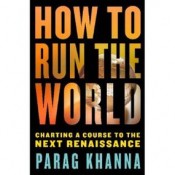 |
Aired 01/16/11
PARAG KHANNA is a Senior Research Fellow in the American Strategy Program at the New America Foundation. In 2008, he was named one of Esquire's "75 Most Influential People of the 21st Century," a Young Global Leader of the World Economic Forum, and one of fifteen people on WIRED magazine's "Smart List." Khanna holds a PhD from the London School of Economics, and Bachelors and Masters degrees from the School of Foreign Service at Georgetown University. He is author of the international best-seller The Second World: Empires and Influence in the New Global Order and his newest, How to Run the World: Charting a Course to the Next Renaissance.
Q&A: ANTONIO DAMASIO, M.D. Ph.D @ USC – Brain and Creativity Institute
Written on January 11th, 2011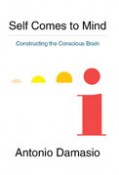 |
Aired 01/09/11
ANTONIO DAMASIO, M.D. Ph.D is the David Dornsife Professor of Neuroscience and Director, Brain and Creativity Institute, at the University of Southern California. Damasio,the recipient of numerous honors worldwide and author of bestselling books, was elected to the American Academy of Arts & Sciences in 1999.
In his newest book, Self Comes to Mind, Antonio Damasio presents compelling new scientific evidence that consciousness-what we think of as a mind with a self-is a biological process created by a living organism. Damasio takes an evolutionary perspective and links the millions of single cells in the human body and brain with single celled organisms. Organisms use whatever tools they have to regulate and manage their biological systems, in order to maintain the balance or homeostasis essential to survive. As consciousness evolves to what he terms the autobiographical self in humans, life management aims not only for survival, but for well-being.
Damasio suggests that the brain's development of a human self opens the way for the appearance of culture -- a radical break in the course of evolution that offers a new level of life regulation - what he calls sociocultural homeostasis.
How are we doing? Is society -- as an organism -- managing itself to achieve balance? It doesn't look good to me right now - in terms of equity, energy, consumption, climate change, etc.
Q&A: VANDANA SHIVA, Physicist, Ecologist, Activist, Editor, & Author
Written on December 27th, 2010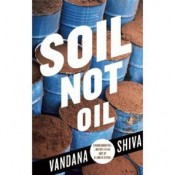 |
Aired 12/26/10
Dr. Vandana Shiva is a physicist, ecologist, activist, editor, and author of many books. In India she has established Navdanya, a movement for biodiversity conservation and farmers` rights. She directs the Research Foundation for Science, Technology and Natural Resource Policy. Her books include Biopiracy: The Plunder of Nature and Knowledge, Stolen Harvest: The Hijacking of the Global Food Supply, and her newest, Soil Not Oil: Environmental Justice in an Age of Climate Crisis. Shiva has been awarded several awards for her efforts including the Right Livelihood Award and the United Nations Environment Program [UNEP] Global 500 Award in 1993, and most recently the 2010 City of Sydney Peace Prize.
Q&A: MICHAEL LEWIS, MONEYBALL
Written on December 19th, 2010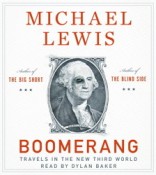 |
Aired 10/16/11
Both Ira Glass and Malcolm Gladwell say today’s guest is their favorite storyteller. In his books and magazine articles, Lewis writes about sports, business, Wall Street, Silicon Valley, political campaigns, fatherhood. Stuff that matters to a lot of people. He’s smart and he has a sense of humor.
Lewis was a trader at Salomon Brothers before he wrote his first best-seller, LIAR’S POKER about the excesses of Wall Street during the 1980s. He continues to write about that world with his last two books, a column for Bloomberg, and articles in Vanity Fair.
His newest book BOOMERANG: Travels in the New Third World is made up of articles originally published in Vanity Fair and picks up where 2010’s THE BIG SHORT left off. What happens after the meltdown of 07-08? Governments are the focus of this book. Mostly because they have taken on the bad debts of the too big to fail banks, so now they are themselves at risk. Now politics and culture become much more important as to how they will deal with that risk. Then there’s the story of California which as a state ran up unsustainable debts during a series of bubbles and can’t raise the taxes to pay for them.
We’ll also talk about the twisted path taken to get MONEYBALL into theatres. The film based on his 2003 book is now a popular and critical success.
MICHAEL LEWIS received a BA in art history from Princeton University and a Masters in economics from the London School of Economics. He contributes to bloomberg.com and Vanity Fair. His other books include The Blind Side, Panic, The New New Thing, and Home Game.
Q&A: ROBERT SCHEER, editor-in-chief of Truthdig – Author
Written on December 7th, 2010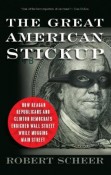 |
Aired 12/05/10
ROBERT SCHEER, editor-in-chief of Truthdig, was Vietnam correspondent and an editor of Ramparts magazine from 1964-69. He worked with the Los Angeles Times for nearly 30 years, as a national correspondent from 1976-1993 and as a weekly syndicated columnist until 2005. In 2005 he co-founded Truthdig. Scheer is heard weekly on Left, Right and Center on NPR's KCRW. A clinical professor of communications at the University of Southern California's Annenberg School for Communication and Journalism, he is a contributing editor for The Nation as well as a Nation Fellow. Scheer has written nine books, including With Enough Shovels: Reagan, Bush and Nuclear War; The Five Biggest Lies Bush Told Us about Iraq; The Pornography of Power and his newest, THE GREAT AMERICAN STICKUP.
